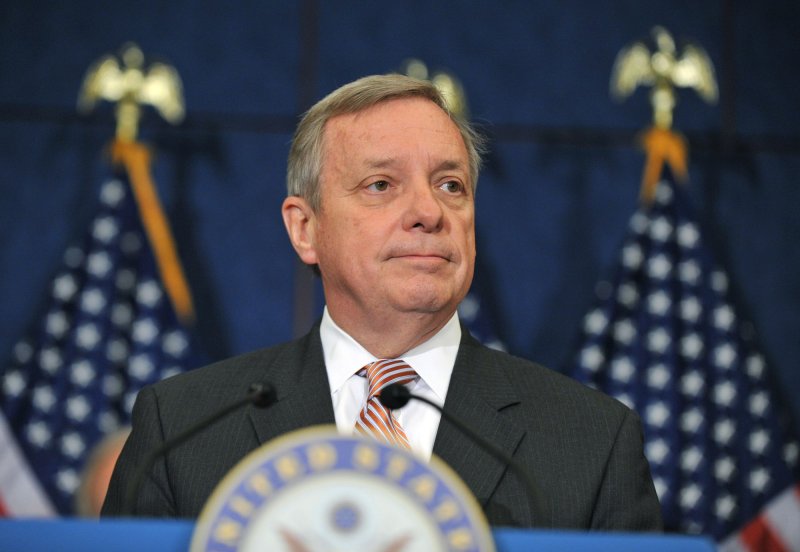Sen. Richard Durbin (D-IL) speaks on the upcoming Senate procedural vote on the National Defense Authorization Act, which includes repealing "Dont' Ask, Don't Tell," in Washington on September 21, 2010. UPI/Kevin Dietsch |
License Photo
WASHINGTON, Nov. 30 (UPI) -- The U.S. Senate Tuesday defeated a proposal that would have banned congressional earmarks for two years.
Thirty-nine senators voted in favor of the ban, offered by Sen. Tom Coburn, R-Okla., while 56 members voted against the measure that would have effectively barred funding for infrastructure projects, community development and local law enforcement grants, The Hill reported.
Coburn offered the ban as an amendment to a food safety bill, which later passed on a 73-25 vote.
Senate Republicans already passed a voluntary ban on earmarks in their caucus over objections raised by several GOP senators.
In floor debate Monday, Coburn said the ban was the only way to rein in out-of-control spending. He did not speak Tuesday. However, Minority Leader Mitch McConnell, who supports the ban, hinted of the issue in remarks on the debate over tax cuts, The Hill said.
"Republicans have heard the voters loud and clear," McConnell said. "They want us to focus on preventing a tax hike on every taxpayer, on reining in Washington spending and on making it easier for employers to start hiring again."
Democrats said the earmark process has been made transparent.
"We have put in place the most dramatic reform of this appropriations process since I've served in Congress," said Majority Whip and Appropriations Committee member Dick Durbin, D-Ill. "There is full disclosure in my office of every single request for an appropriation. We then ask those who have made the requests to have a full disclaimer of their involvement in the appropriation, so it's there for the public record. This kind of transparency is virtually unprecedented."















